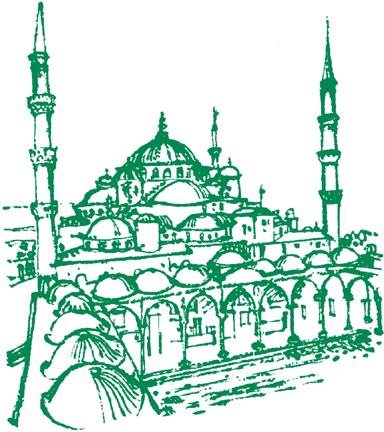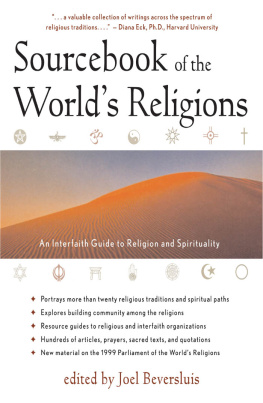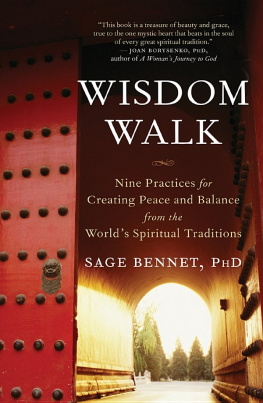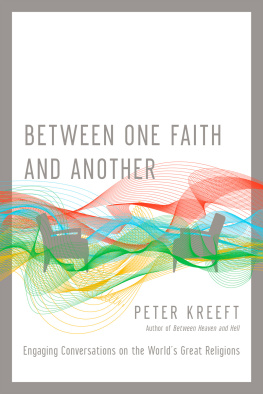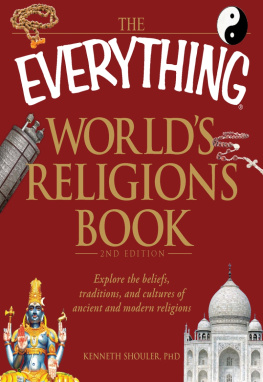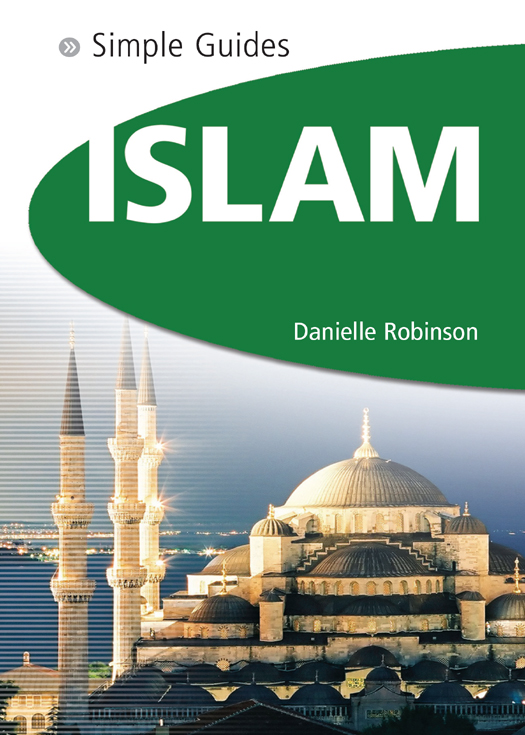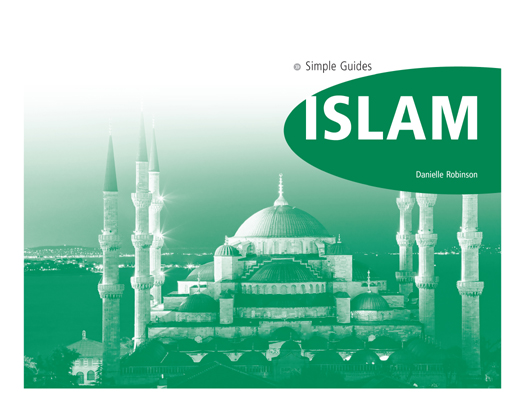Published in Great Britain by
Simple Guides, an imprint of Bravo Ltd
59 Hutton Grove, London N12 8DS
www.kuperard.co.uk
Enquiries:
First published 1997 by Global Books Ltd.
Reprinted 1999, 2001
This edition published 2007
Copyright 2007 Bravo Ltd.
All rights reserved. No part of this publication may be reproduced, stored in a retrieval system, or transmitted in any form or by any means without prior permission in writing from the Publishers
eISBN: 978-1-85733-633-7
British Library Cataloguing in Publication Data A CIP catalogue entry for this book is available from the British Library
Cover image: The Blue Mosque, Istanbul. istockphoto/Damir Cudic Images on pages: , istockphoto. Drawings by Irene Sanderson
v3.1
About the Author
DANIELLE ROBINSON was born and bred in Toulouse, in the South of France. In 1971 she married Neal Robinson, today a leading authority in Islamic Studies and author of The Sayings of Muhammad (London, 1991). Subsequently, Danielle taught French throughout England and now lives in Yorkshire where she is an Honorary Visiting Fellow at the University of Bradford. She is currently closely involved in Cultural Studies relating to Islam in France, and in particular the representation of Muslim women.
For Khadijah and Nudrat our Bradford friends
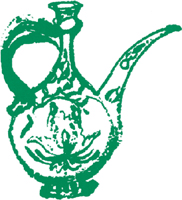
Ewer symbol of purification
List of Illustrations
Preface
It is a great privilege for a scholar to be immersed in a subject which fascinates him and to feel that he is helping to roll back the frontiers of knowledge.
Nevertheless, the bestowal of privileges usually imposes duties. I have long believed that scholars in universities have a duty to write simple books for the larger public who have neither the time nor the inclination to wade through hundreds of pages of academic prose. Thus when Paul Norbury asked me to write The Simple Guide to Islam, I accepted the invitation despite realizing that it might prove difficult to fit the work in with all my other duties as a teacher, researcher and administrator.
After several months spent drafting chapters at weekends, it became clear that the book I was writing was not the one that I had been asked to write. It was relatively simple and relatively brief but it was going nonetheless to be some three or four times the required length. At this point Danielle, my life partner, saved the day by offering to share the task. She is not a specialist in Islamic Studies, at least not in the conventional sense. Over the past twenty years, however, she has read many books and articles on the subject including everything that I have written. She has accompanied me on numerous trips to Morocco, Tunisia and Syria; she had all 1,250 pages of Doughtys Travels In Arabia Deserta read to her in lieu of bedtime stories; and she spent much of her time living and working amongst Muslims in Bradford. More than this, she has a sharp mind and asks the kind of awkward question that the intelligent lay person might be expected to ask.
At first, we thought of joint authorship; but now that I have read the book through I feel that it is Danielles creation. I provided the raw ingredients from which she selected what she needed. She added the sauce without which it would be nowhere near as palatable. Of course, there are a few places where I would not have put things quite as she has, but there are many more where I could not have done, try as I might!
Neal Robinson
THE UNIVERSITY OF LEEDS , August 1997
Introduction
We once experienced a culture shock. The fact that its waves still affect us twenty years later must be proof of its impact. It was a benign enough occasion: a young Franco-English couple had crossed the Mediterranean for the first time for a winter holiday in Tunisia with their baby daughter. From an England where trains were delayed because of snow and ice, they were transported into a mild climate matched by the kindness of its people to children and foreigners.
On the local train taking them from Tunis, via Carthage, to Sidi Bou Said, they fell into conversation with an urbane, educated, bilingual Tunisian, who was willing to discuss any topic, including religion. They were shocked to discover that he thought that Christians worshipped three gods! How could such a perception of Christianity, whose members would all defend the unity of God, have arisen? And if such a well-meaning Muslim could hold such bizarre views, what was it like on the Christian side? What dreadful misrepresentations might Christians carry with them of Islam without even knowing it?
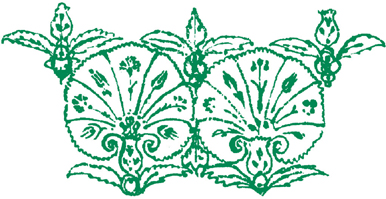
Sixteenth-century velvet brocade used by the Ottoman Sultan
Neal returned from the holiday committed to learning Arabic so that he could read the Quran and Muslim theology, in the original. This he achieved and has since become a highly regarded Arabist. As for myself, via Cultural Studies in French, I have pursued the thread in a different way, for example, monitoring the clashes in French society when they centre on Muslims or children of Muslim immigrants. I read their books and books about them, I watch their films and films about them, as well as media reports.
In one of their books, entitled Georgette, the clash of commitments is such that the Muslim pupil who is pushed to learn to read and write in French by her non French-speaking father, must follow his advice. Every night, she has to copy out her homework starting from the back of the book and writing from right to left. On the first line, in order to bless her work, her father has even laboriously traced the Arabic for Bismillah, In the name of God. Every morning, however, the teacher opens the girls exercise-book at the front and punishes her for the unexplained blank page. As the girl lies dying under the wheels of a car, trying to flee the nightmarish situation, she feels as if she were gasping for air at the bottom of an ink-well. It is only a novel, of course, but it is good to know that by reading books about others people are trying to understand one another.
And so it is that you are reading this book. And so it is that I have taken the opportunity offered by gentle goading from the publisher to write it, relying on full access to Neals on-going work and library to put together some reflexions on basic Islam. They are not meant to be exhaustive but to provide an informed basis for readers who, like me, have often pondered.
In the meantime, Neal is finishing a much meatier and informative volume with the working title of Islam, a Concise Introduction. He is also planning a round of visits to France for his next book which will be on French Muslims. People have no idea how much pillow-talk is devoted to Muslim matters! A case of a pas-de-deux perhaps?
